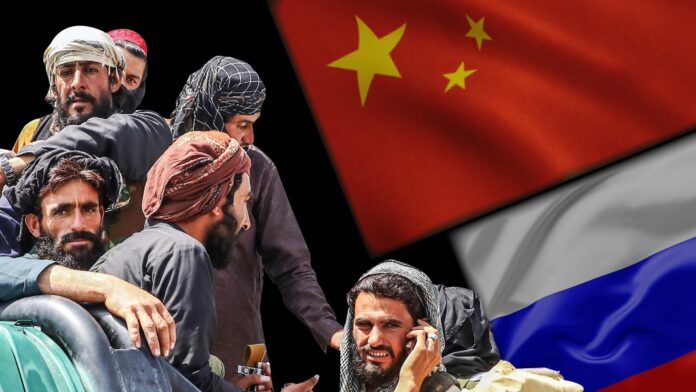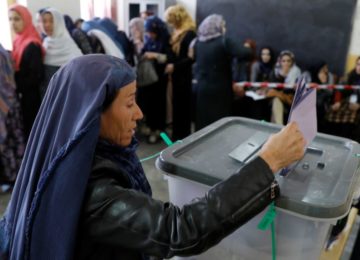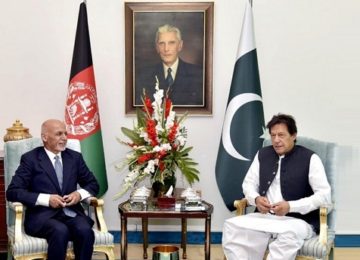The United States has blocked Afghan Central Bank foreign currency reserves from reaching the country, totaling approximately US$7 billion. Despite the international pressure, the US is hesitant to allow this money to return to its rightful owners – the Afghan people – since it is still reeling from its defeat. To deal with the existing economic crises in their country while realizing they will not get support from the West, the Taliban have reached out to Russia and China for assistance.
The United States pullout from Afghanistan last year, after almost 20 years of occupation, has been painful and embarrassing for them the American government. Despite spending a trillion dollars on the war, the US has achieved nothing in strategic terms and even with its military power, could not manage to defeat its main enemy, the Taliban. Although you could classify the Taliban as a bunch of rag-tagged guerilla fighters, they still possessed the discipline and perseverance to achieve their goal.
Following the US departure, the Taliban started to bring some form of stability to the country and formed a government consisting of their former senior commanders and religious leaders. However, running the country has not been easy as the country is amongst the poorest nations with the worst living conditions. There is hardly any food for the general population, and there is no existing infrastructure for providing energy needs, including the import of oil that is direly needed. Hence, they are in dire need of international aid.
To compound the worsening situation, the US has blocked Afghan Central Bank foreign currency reserves from reaching the country, totaling approximately US$7 billion. Despite international pressure, the US is hesitant to allow this money to return to its rightful owners – the Afghan people – since it is still reeling from its defeat. Recently though, after calls from within the administration, President Biden is mulling the prospect of allowing US$3.5 billion from the total amount to be released.
The sticking point has been the Western insistence on seeing more liberal changes from the Taliban in protecting women’s freedom and rights that are dreadfully lacking. Here, the Taliban have to promote a softer image to the world, to gain recognition for their government, which to this day, is not officially recognized by most countries, including the US, Europe, Pakistan, and Iran.
Hence, to deal with the existing economic crises in their country while realizing they will not get support from the West, the Taliban have reached out to Russia and China for assistance. During a recent tour of Russia, a Taliban trade delegation, led by their Minister of Trade and Industry, Nuriddin Azizi, formally requested the Russians to supply Afghanistan with wheat, fuel, and 1 million tons of oil at cheaper rates and on a barter basis. (For the Russians, selling cheap oil in the market is a major bargaining tactic and means to court countries in their sphere).
The Taliban minister highlighted the fact that Afghanistan is rich in minerals, fruits, and rare earth metals like lithium which Russia can benefit from. He also stated that Russia has remained a friendly country to Afghanistan and there is scope to further improve relations and trade between the two nations.
Similarly, the Chinese government has been making overtures to the Taliban government, criticizing the U.S. decision to block Afghan Central Bank reserves. China’s special envoy for Afghan Affairs, Yue Xiaoyong, during a recent visit to the turmoil-hit neighboring country, noted that “stability is gaining ground” in Afghanistan. On 18th August, he told Chinese official CGTN broadcasters that it was “necessary” to engage with the Taliban and speed up “practical cooperation” with Afghanistan.
He added that China has removed tariffs on 98% of goods being imported from Afghanistan and has provided much-needed humanitarian aid to the country. Furthermore, he sought the Taliban’s commitment to helping combat cross-border terrorism with fugitive members of the outlawed East Turkistan Islamic Movement, from using Afghan soil for attacks against Chinas Xinjiang province, on the western border.
Pakistan, along with Iran, has also initiated trade agreements with the Taliban authorities. Previously, for its Chinese-built energy plants, Pakistan used to import 70% of its thermal coal from South Africa. However, recently it has boosted its imports from Afghanistan, buying it at a 40% cheaper rate than in the international market. Likewise, the Iranians have also signed an agreement to sell 350,000 tonnes of oil to Afghanistan.
Suffice to say that the vacuum left by the U.S departure from Afghanistan has created opportunities for neighboring countries in the region to establish mutually beneficial relations with the Taliban. In a world being increasingly divided by ideological blocs and alliances, it makes sense for countries like Russia and China to pull Afghanistan into their orbit and counter the U.S, influence in the region.
There is no question that tensions are rising in the wake of the recent joint Russian-Chinese military drills. Therefore, Afghanistan would only benefit from a closer relationship with the Russian-Chinese bloc.
by Zehra Zaidi
Originally published in Matrix Magazine








